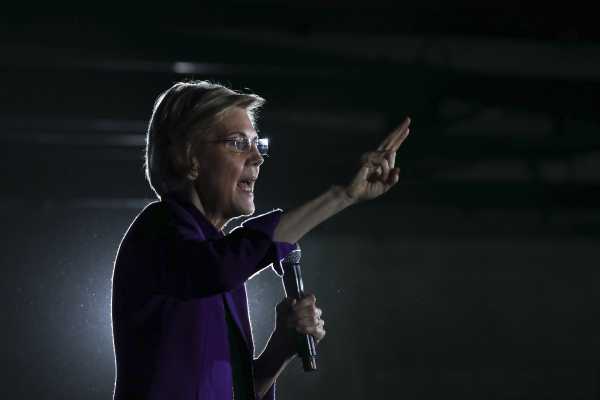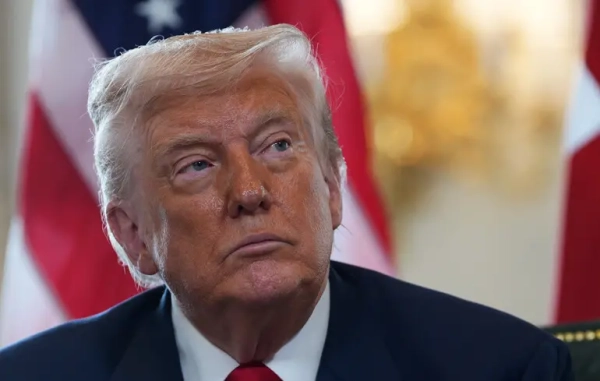
Sen. Elizabeth Warren isn’t just coming for Google, Facebook, and Amazon — she wants to break up Apple too.
On Friday, the Massachusetts Democrat laid out an ambitious plan aimed at promoting competition in the tech industry and proposing to break up some of the biggest names in the sector. Over the weekend, she discussed the proposal with Nilay Patel at The Verge and confirmed that beyond the three companies she initially named to split up, she would also focus on Apple. She said it would have to choose between running the App Store and distributing the apps in it.
“Apple, you’ve got to break it apart from their App Store. It’s got to be one or the other. Either they run the platform or they play in the store,” she said. “They don’t get to do both at the same time.”
Her issue with Apple lines up with the same problem she’s raised with Google and Amazon: These companies get a competitive advantage in search results on their platforms. Right now, Google, for example, can prioritize its restaurant rating results over Yelp’s. Amazon can identify which products are doing well on its platform, start making them, and then push them to consumers over other brands.
“If you run a platform where others come to sell, then you don’t get to sell your own items on the platform because you have two comparative advantages. One, you’ve sucked up information about every buyer and every seller before you’ve made a decision about what you’re going to sell,” Warren said. “And second, you have the capacity — because you run the platform — to prefer your product over anyone else’s product. It gives an enormous comparative advantage to the platform.”
Warren also said she would seek to appoint regulators who would break up NBCUniversal and Comcast, which completed their merger in 2011 after agreeing to dozens of behavioral conditions with regulators. But that’s proven difficult to enforce in practice — for example, Bloomberg TV has repeatedly complained that it is exiled in the channel guide from other business channels, including CNBC.
Warren’s rollout of her plan to take on big tech has made a splash. Beyond breaking up big tech companies, she also proposed passing legislation that would make companies “platform utilities” if they have an annual global revenue of $25 billion or more and offer an online marketplace, exchange, or some other way to connect third parties. They wouldn’t be able to own both the platform utility and the participants on the platform or be able to share data with third parties. For Apple, that translates to the App Store and app distribution being split up.
Apple did not return a request for comment on Warren’s proposal.
Apple — and the App Store — has come under antitrust scrutiny before
This isn’t the first time Apple has come under scrutiny for possible anticompetitive practices, including with regard to the App Store specifically. The Supreme Court is currently weighing Apple v. Pepper, which originated in 2011 after a group of iPhone owners claimed that Apple keeping third-party apps out of its App Store was driving up prices and hurting competition.
The Verge’s Adi Robertson laid out the case last year:
Apple says its closed ecosystem isn’t a monopoly.
The case has played out a bit differently in court, because instead of focusing on whether Apple’s practices are legal, the courts have instead paid more attention to whether iPhone users are allowed to sue Apple. The Supreme Court last year heard arguments on that matter.
What to do about big tech will definitely be on the agenda in 2020
Tech giants have come under increasing scrutiny in recent years. Facebook has seen a cascade of scandals related to areas such as data privacy and misinformation, and the size and reach of companies such as Google and Facebook have become a source of growing unease.
A recent Axios/Harris Poll survey that asked respondents to rank the 100 most visible companies in the United States found that Facebook, Google, and Comcast all saw their brand reputations decline last year. Calls to regulate tech companies in the US have grown louder.
Some 2020 candidates are picking up on the sentiment and folding reining in big tech into their campaign platforms. Sen. Amy Klobuchar (D-MN) has a long history of focusing on tech and antitrust issues throughout her time in Congress. She, along with Sen. Mark Warner (D-VA), introduced the Honest Ads Act, which would force platforms like Facebook to disclose political ad purchasers. And she is widely viewed as a Democratic leader on antitrust.
Sen. Bernie Sanders (I-VT) has zeroed in on Amazon. Last year, he introduced the Stop BEZOS Act, named after Amazon founder Jeff Bezos, that would punish large corporations with low-wage employees. Amazon subsequently raised its minimum wage to $15 an hour.
As the campaign continues, other candidates are likely to talk more about how they would approach the tech industry as well.
The news moves fast. Catch up at the end of the day: Subscribe to Today, Explained, Vox’s daily news podcast, or sign up for our evening email newsletter, Vox Sentences.
Sourse: vox.com






